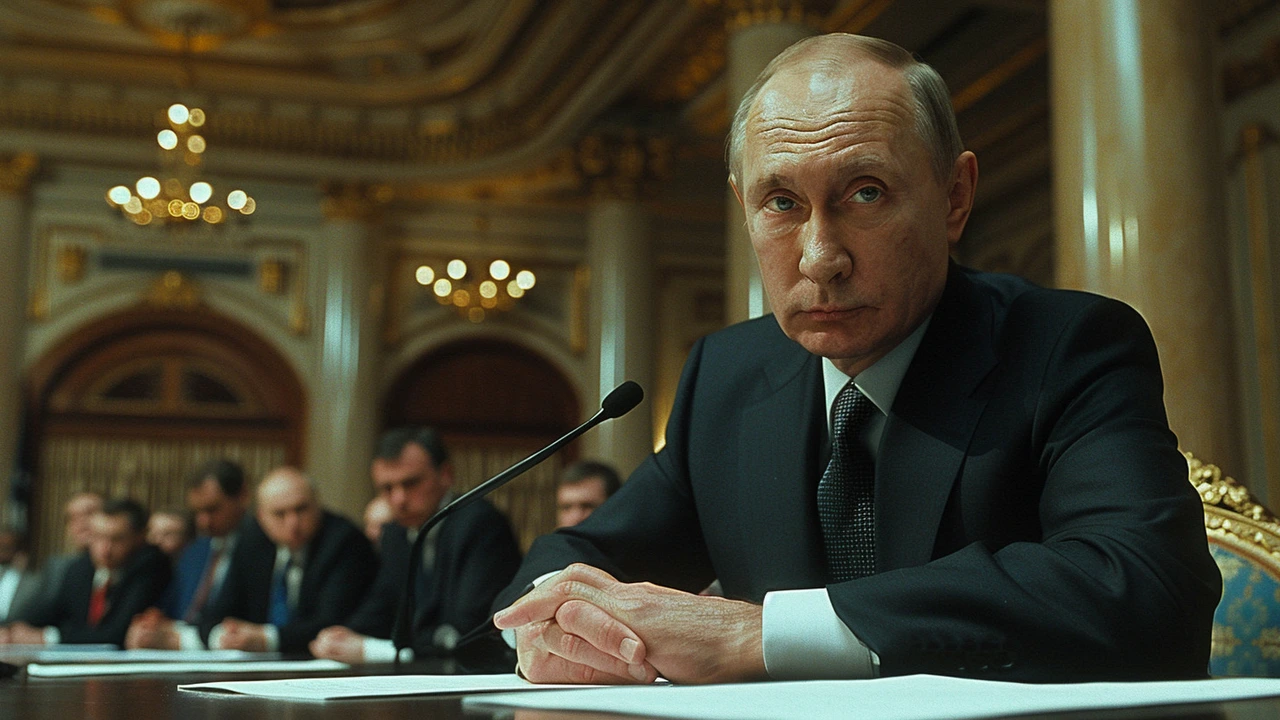
Vladimir Putin Calls for a New Global Security System
In a bold statement, Russian President Vladimir Putin declared that the existing Western model of global security is outdated and ineffective. Speaking at a recent press conference, he emphasized the urgent need for a new, more stable system that would address current geopolitical challenges. According to Putin, the Western security framework has collapsed under the weight of its own contradictions, making it imperative to rethink and redesign the entire architecture.
Putin's remarks come at a time of heightened tensions between Russia and Western nations, particularly those in NATO. The Russian President stressed that this new security system should not exclude any nation, irrespective of existing alliances or historical conflicts. He specifically mentioned NATO as a potential participant in these discussions, signaling a willingness to engage in meaningful dialogue despite the current strained relations.
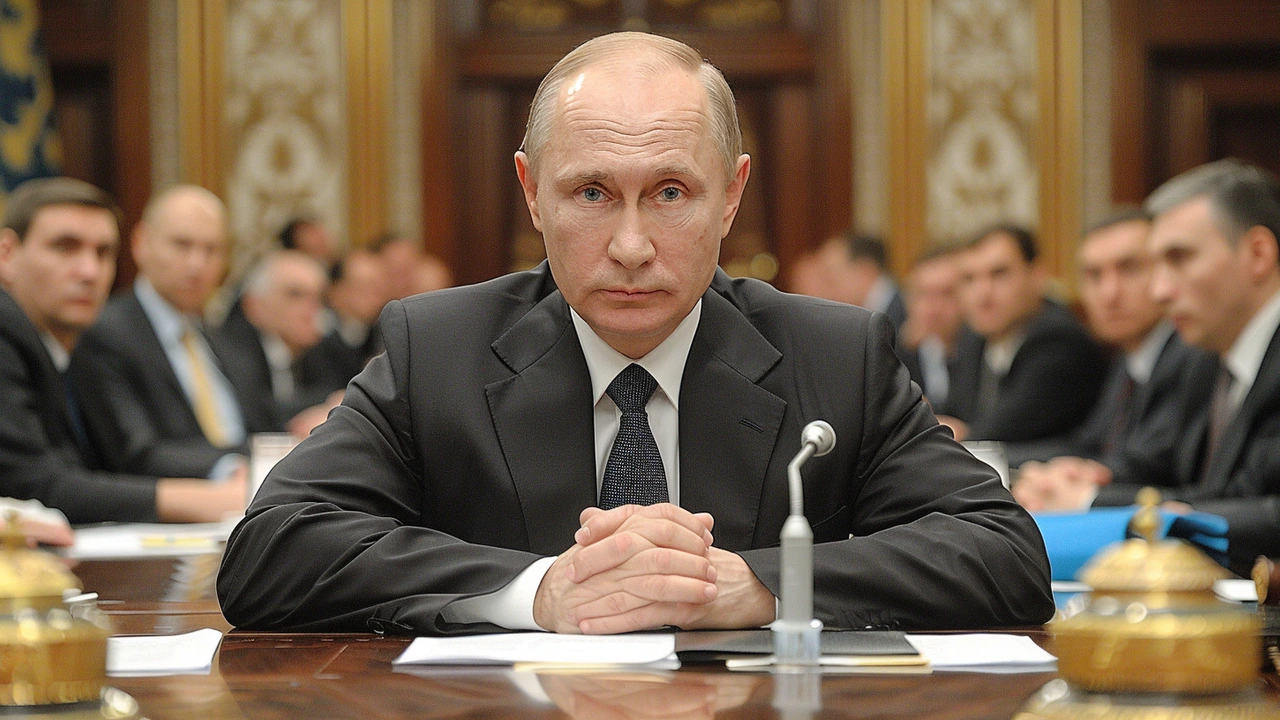
Invitation to NATO and Other Nations
Highlighting the necessity of geographical cooperation, Putin called on all interested countries to partake in the development of this new security architecture. Europe and Eurasia, he argued, are inherently linked by their geography, making it crucial for these regions to work together to ensure stability and peace. "It is not just about Russia and NATO," Putin said. "This is a matter that concerns all nations sharing this geographical space."
The Russian leader underscored the importance of mutual respect and cooperation, suggesting that a collaborative approach would yield more sustainable and effective security measures. He also hinted at a transparent and inclusive process, encouraging smaller nations to voice their concerns and contribute to the dialogue.
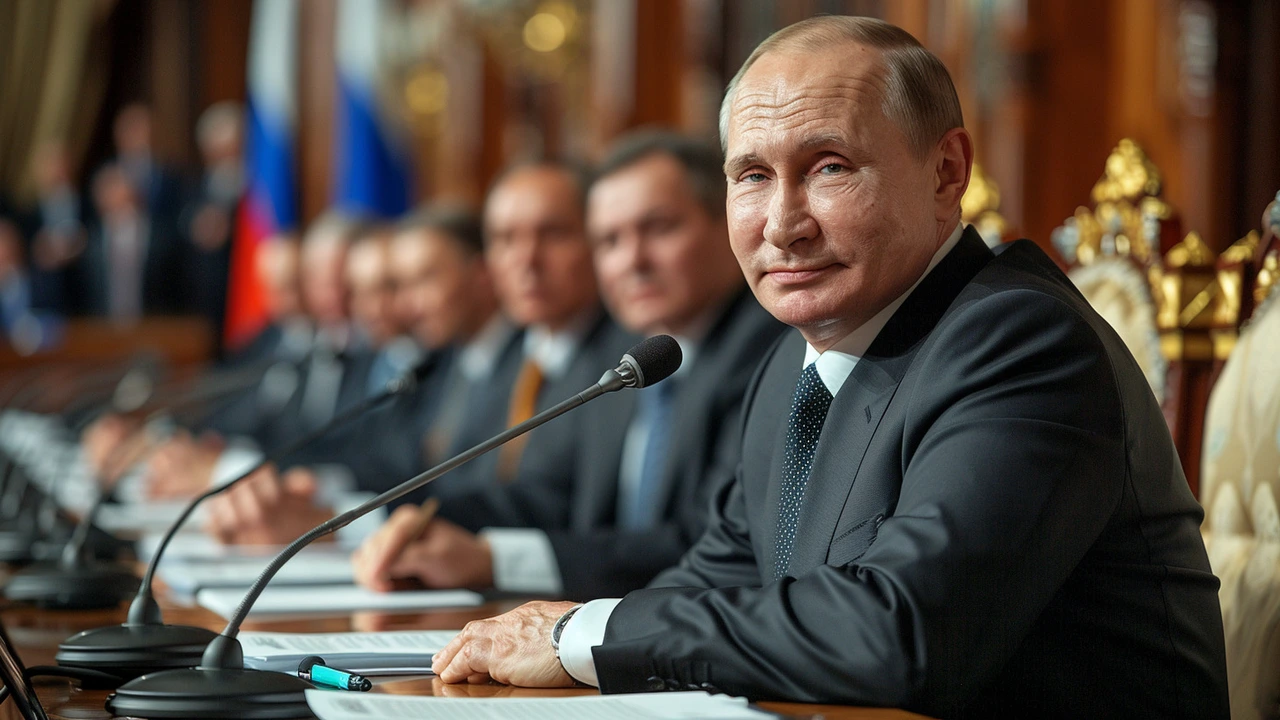
Upcoming Visits to North Korea and Vietnam
Adding to the geopolitical intrigue, Putin is scheduled to visit North Korea and Vietnam in the coming weeks. This has sparked widespread speculation about the nature and objectives of these trips. The Vedomosti newspaper reported that these visits could potentially lead to new alliances or at least strengthen existing ties.
With North Korea, discussions are likely to center around security issues and economic cooperation. Given the isolated nature of the North Korean regime, any engagement from a major global player like Russia is bound to attract significant attention. For Vietnam, the focus is expected to be on trade and investment, although security considerations will undoubtedly also feature in the talks.
Global Reactions and Implications
Putin's call for a new global security system has elicited a range of reactions from world leaders and international organizations. Some view it as a constructive move that could pave the way for more inclusive and effective security measures. Others are skeptical, seeing it as a strategic maneuver by Russia to expand its influence and undermine Western alliances.
The proposal has also raised questions about the future of existing security structures like NATO and the European Union. If a new system were to be developed, how would it integrate with or replace these established organizations? Could it lead to a realignment of global power dynamics? These are questions that will likely dominate international discourse in the coming months.
Political analysts are divided on the potential outcomes of Putin's initiative. Some argue that it presents an opportunity for resetting relations between Russia and the West, offering a fresh start based on mutual interests. Others caution against being overly optimistic, pointing to Russia's previous actions in Ukraine and other conflict zones as evidence of its broader geopolitical ambitions.
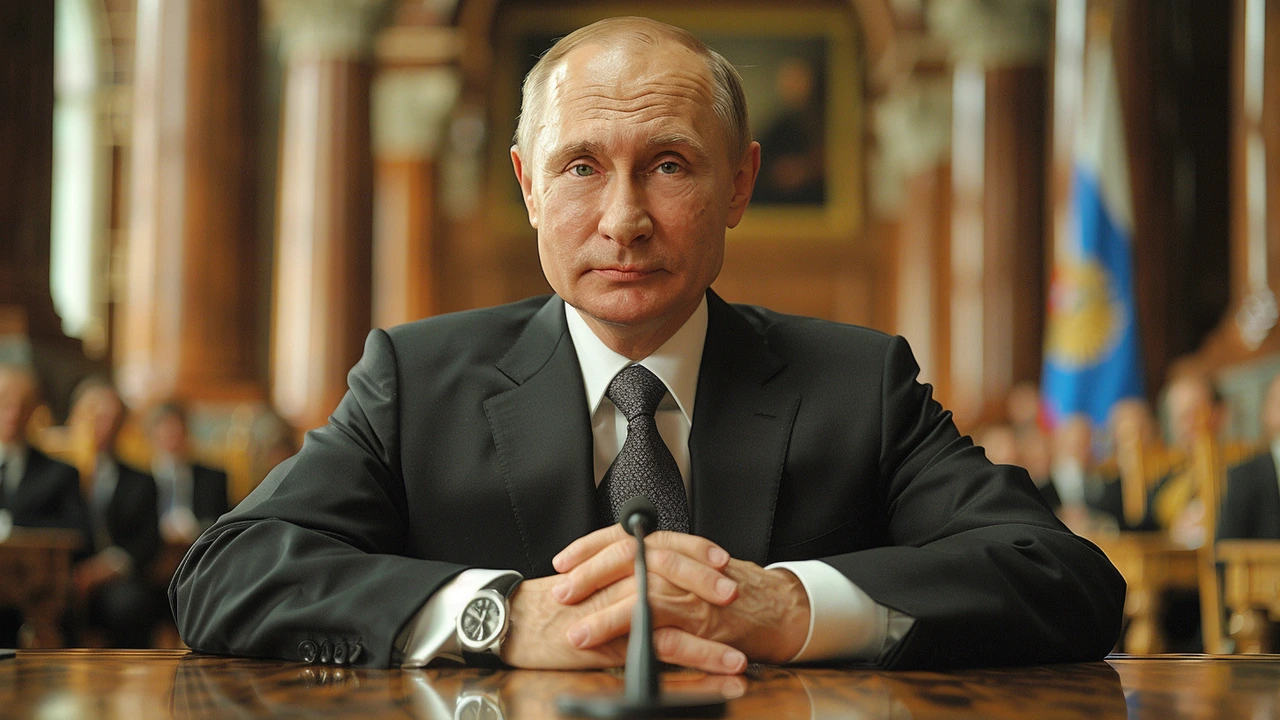
Conclusion
As the world grapples with a range of security challenges, from terrorism to cyber threats, the need for a robust and adaptable global security framework is more pressing than ever. Vladimir Putin's call for a new system is a significant development that warrants close attention. Whether it leads to meaningful change or further discord remains to be seen.
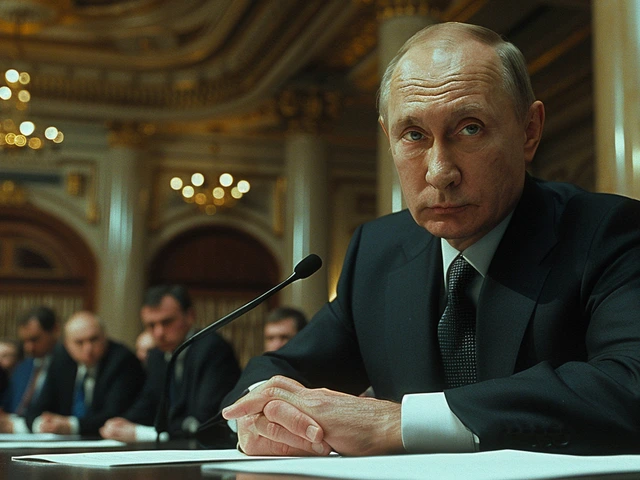
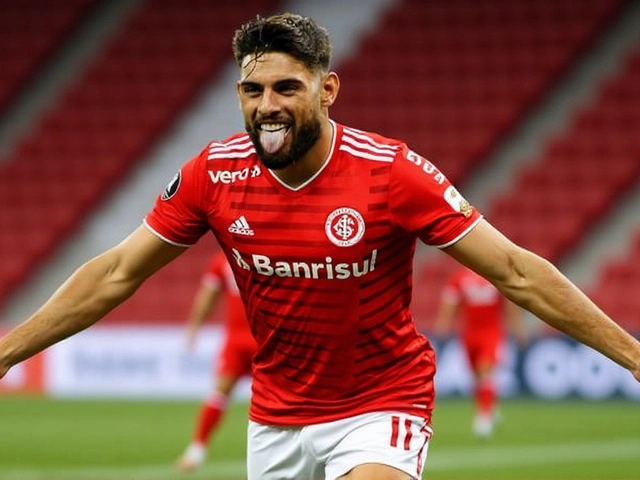
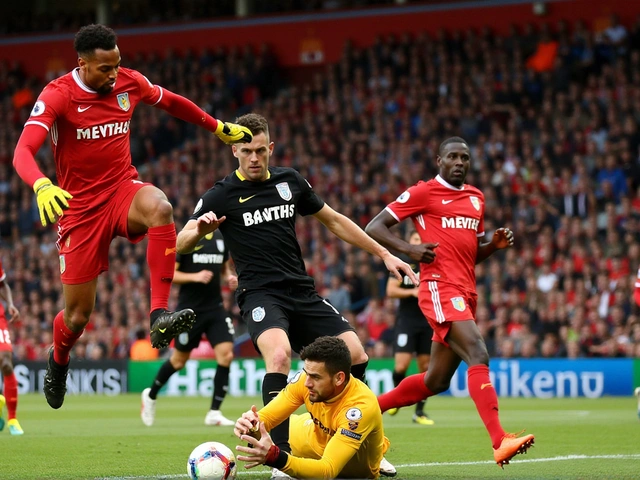



Wow, this is a refreshing call for dialogue. While many see Putin’s words as just rhetoric, we can actually view it as an opening for real peacebuilding. A new security framework that includes every nation could, in theory, reduce the endless tug‑of‑war mentality that dominates Europe and Eurasia. If both sides come to the table with genuine respect, we might finally see a chance to lower the swords. Let’s keep an eye on how the talks evolve and hope for constructive steps.
It is noteworthy that President Putin emphasizes inclusivity in his proposal. By inviting NATO, he signals a willingness to bridge long‑standing divides, albeit cautiously. The underlying message appears to be a strategic rebalancing rather than pure altruism. Observers should monitor whether this overture translates into concrete negotiation frameworks.
President Vladimir Putin’s recent proclamation regarding a "new global security system" is undeniably a bold strategic maneuver, one that warrants scrupulous examination. The assertion that the current Western security architecture has "collapsed under the weight of its own contradictions" is a sweeping indictment that simultaneously serves to delegitimize existing institutions and to elevate Russia’s diplomatic stature. By positioning Russia as a potential architect of a more inclusive framework, the Kremlin seeks to reframe its narrative from that of a regional aggressor to a global mediator. This rhetorical shift, however, must be measured against Moscow’s recent military actions in Ukraine and its involvement in various proxy conflicts, which continue to erode trust among Western allies. The invitation extended to NATO is particularly intriguing, as it suggests a willingness to engage with an organization that has been labeled an adversary for decades. Yet one must ask whether the invitation is genuine or merely a diplomatic ploy designed to sow discord within the alliance. If NATO were to entertain such dialogue, it would have to grapple with the paradox of negotiating with a partner who simultaneously violates the territorial sovereignty of a member state. The proposed framework’s emphasis on "geographical cooperation" between Europe and Eurasia underscores a strategic focus on the landmass that Russia dominates, potentially giving Moscow disproportionate influence over any resultant security architecture. Moreover, the inclusion of smaller nations, while rhetorically appealing, may be rendered moot if the primary decision‑making power remains concentrated in Moscow and its close allies. The upcoming visits to North Korea and Vietnam further complicate the calculus, as they signal a broader outreach to non‑Western powers that could form a counterweight to NATO’s influence. This triangulation could, in theory, foster a multipolar security environment, but it also raises the specter of a fragmented world order where competing blocs vie for dominance. Analysts must consider whether the “new global security system” is a genuine attempt at collaborative problem‑solving or a sophisticated strategy to legitimize Russian hegemony under the guise of inclusivity. The answer, perhaps, lies in the details: the specific mechanisms for decision‑making, the enforceability of agreements, and the transparency of verification processes. Until such particulars are disclosed, the proposal remains an elaborate political statement, rich in symbolism but thin in actionable substance. Its reception among the international community will likely be divided, with some heralding it as a step toward multipolar balance and others decrying it as a veil for expansionist aims. Moreover, any credible implementation would require rigorous verification protocols, something that has historically been lacking in Russian‑led initiatives. Finally, the true test will be whether NATO members are prepared to set aside entrenched suspicions and engage in constructive compromise.
One might applaud the lofty ambition of a “new global security system” that purports to welcome every nation, yet the irony lies in the fact that the very architect of this proposal has repeatedly demonstrated a penchant for unilateral action. The rhetorical flourish of “inclusive dialogue” smells faintly of a rehearsed script, designed more to rehabilitate an image than to engender genuine trust. While the invitation to NATO is couched in the language of cooperation, one must wonder whether it is not merely a strategic overture to fracture the alliance from within. In a world where words often masquerade as policy, this declaration may prove little more than a diplomatic tableau.
They’re definitely hiding something.
Glad to see a push for dialogue; inclusive talks could be a step forward.
The shadows of old empires loom over these talks, and we are the silent witnesses to history’s next act.
Omg!!! This is such a massive development!!! 🌍✨ A new security framework that actually *includes* everyone? Sounds like a dream!!! 🤞🤞 Let’s hope the powers that be actually listen and don’t just spin their usual spin‑cycle!!! 🙌💬
Ah, the classic “let’s all get along” line-so original, right? It’s almost as if world leaders think a catchy slogan can replace actual policy work. Sure, invite NATO to the party, but remember who’s still holding the DJ booth.
Whoa, calm down with the novel-this isn’t a Hollywood script, it’s real geopolitics! Cut the dramatics and give us some concrete steps, not a 17‑sentence soap opera.
Interesting perspective, though I’m skeptical about the feasibility.
Totally get where you’re coming from, Partho. Still, I think we should keep an eye on how NATO actually responds before drawing any big conclusions.